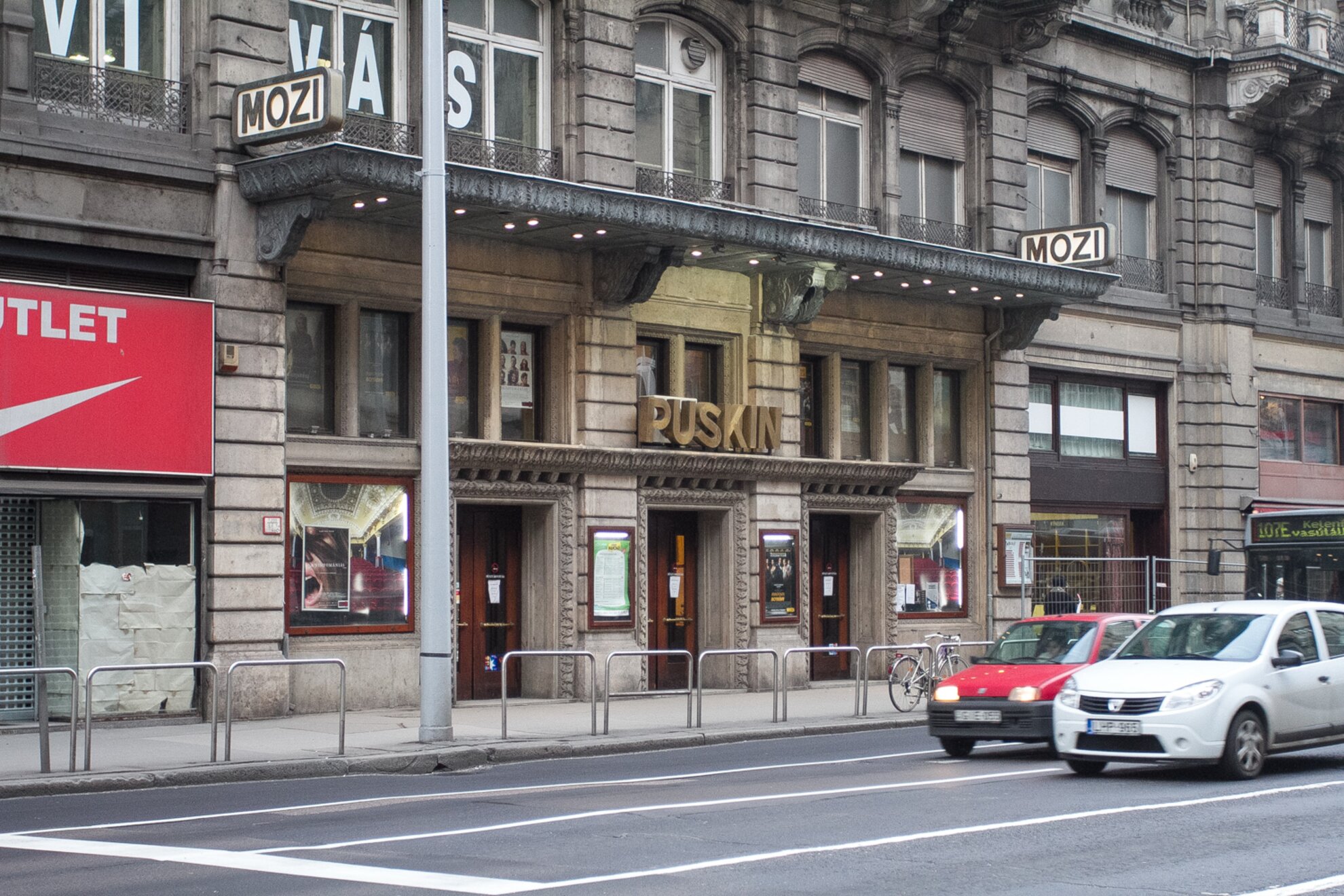The building on downtown Pest’s busy Kossuth Lajos Street that Puskin Cinema has occupied for the past nine decades was previously a coffeehouse: the Magyar Világ café functioned there until 1919, and after that, it was the location for a bank. However, Hungary experienced a major financial collapse during the 1920s, which resulted in the closing of many Budapest-based banks, including this one. Once again, the venue had to be repurposed – this time, into a movie theater. Fórum Cinema was founded by Jenő Deák, who owed a film-rental company since 1912, and the venue welcomed the first wave of movie lovers in 1926. This was the first place in Budapest to screen a sound film: The Singing Fool, starring Betty Bronson and Josephine Dunn. The groundbreaking cinema continued to be a popular Budapest cinema through 1944, but the devastation of World War II brought an end to the theater’s early golden age. The name was changed from Fórum to Puskin after it was rebuilt following the war – but then the building faced further destruction during Hungary’s 1956 Revolution.

Fortunately, the cinema was restored after peace once again returned to Hungary, and the Puskin continually entertained the masses during Hungary’s era under Soviet control, albeit with outdated equipment. A major technical reconstruction of the cinema finally took place in 1988 – for example, the old projectors were replaced – and on October 15th of 1998, the new Puskin Cinema opened. Before then, it had only one screening room, which could host 623 film fans, but the management chopped down a part of it and even took out some toilets to create the Amarcord screening room. During the recent years, they’ve added two more screening rooms in the building, so nowadays you can watch movies in no less than five different halls.

During the reconstruction of the building, the frontspiece remained unchanged – mainly because it’s protected as a local monument. Where the ticket office used to be – made famous in 1961, when Hungarian filmmaker Márton Keleti shot some of the most important scenes of his popular film Nem ér a nevem – you can now find the Puskin café. The sculptures, which are based on the usual man-woman symbols, were made by Sándor Kristián and Oszkár Varga, and the chandelier was gifted to the cinema from Jenő Grünberger.
During September 17-18, Puskin will celebrate its 90th anniversary with a variety of special programs. However, before we jump into the ocean of different film titles and invited guests, we want to specify that due to the high interest in these events, you can’t buy tickets for separate screenings. Instead, you can buy Puskin 90 cards at the cinema’s ticket office for 2,000 forints. A card is good for viewing four programs that you can choose from during both days. Again, due to the extraordinary demand, you cannot reserve a card or a seat at the programs – about which can you read more if you scroll down.

They have invited most of the important figures in the history of Hungarian filmmaking: István Szabó, Gyula Bodrogi, Mari Törőcsik, Lajos Koltai, Károly Makk, and others. Luckily for us, they’ll screen a film or two of each given guest, but with the original (Hungarian) audio. Still, if you happen to speak the language, don’t miss out on the screening of classics like Mephisto or The Fifth Seal. However, there are international favorites on the bill too: on Saturday, they’ll screen Casablanca, Blue Velvet, Romeo and Juliet, Play It Again, Sam, and on the following day, Youth, The Great Beauty, and The Godfather – with original audio and Hungarian subtitles. Apart from the films and the discussions with the aforementioned celluloid heroes, there will be a special poster special exhibition too, and another exhibit dedicated to the history of Puskin.




